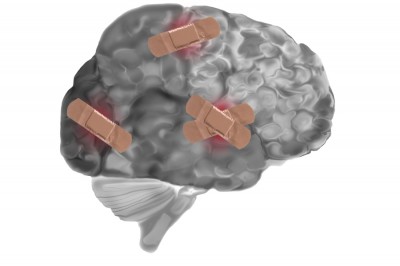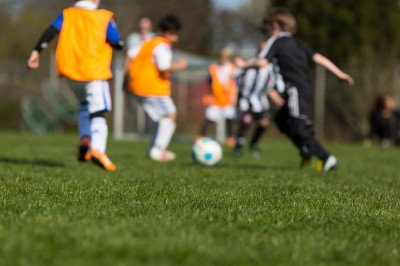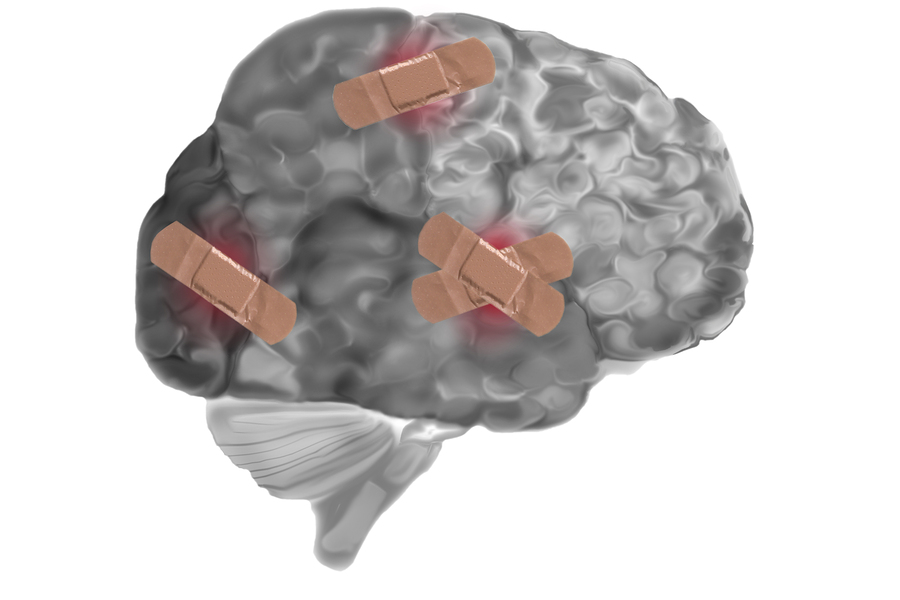By Dimple Mukherjee
 Ever had one of those moments when you are on the sidelines wondering if that injured child on the field or court is yours? I have had many moments like that and while thankfully nothing serious has ever occurred, my child has suffered a concussion or two.
Ever had one of those moments when you are on the sidelines wondering if that injured child on the field or court is yours? I have had many moments like that and while thankfully nothing serious has ever occurred, my child has suffered a concussion or two.
Often times, parents do not realize the significant impact a concussion has on a child’s developing brain and many are not aware of the precautionary measures to take when a child does suffer a concussion. Being in the healthcare field, I have often taken this information for granted and assumed that this would be public knowledge; however, more recent interactions with other parents and coaches have revealed this is not so. In fact, there have been several articles of late Canada’s national newspaper, the Globe and Mail, that have discussed the significance and impact of concussions on the developing brain.
A concussion is a traumatic brain injury (TBI) and has been linked to mental health issues – including higher risk of attempting suicide, in teenagers who have suffered TBI, as per research. Other consequences of concussions can include academic difficulties, increased likelihood of alcohol and drug use, difficulty with social relationships, and increased likelihood of being bullied at school. As a mother of three active boys, I feel strongly that parents have access to the necessary resources to educate themselves in order to safe guard their children by minimizing the risks when their children are playing sports as well as to learn how to care for your child should he/she suffer a concussion.
A concussion or a TBI is an injury to the brain caused by the head being hit by something or shaken violently. Guess what happens when your child is playing a high-impact sport such as football? Exactly that. Trust me, I know. Two of my three boys have been playing full-contact football since they were seven years old, with the youngest one eagerly waiting to get onto the field next year. You can bet I have had my share of scares but inevitably, we were faced with having to deal with a concussion. My oldest son suffered a concussion years ago while playing football and was promptly treated at The Sick Kids Hospital in Toronto. While he left the hospital with a “clean slate”, he was diagnosed with a learning disability a few years after. Was the concussion a contributing factor to the development of my son’s learning disability and subsequent cognitive difficulties? Who knows, but it leads me to wonder if the two are related.
One common misconception is that concussions only occur if there is a hit to the head and this is not true. A concussion can occur if the head is shaken and this type of injury can be seen, for example, in gymnasts. A concussion can affect the way your child thinks, moves and behaves. The signs of a concussion vary but can include (this list is not inclusive):
· Dizziness
· Headaches
· Nausea/Vomiting
· Balance difficulties
· Confusion/disorientation, dazed
· Amnesia (memory loss) surrounding the event
· Changes in mood (e.g. irritability)
· Ringing in the ears
· Tiredness
· Slurred speech
 If you or the coach suspects that your child has suffered a concussion, it is important to seek medical attention as soon as possible. In the meantime, follow the precautionary measures until you are able to receive professional medical assistance and diagnosis for your child.
If you or the coach suspects that your child has suffered a concussion, it is important to seek medical attention as soon as possible. In the meantime, follow the precautionary measures until you are able to receive professional medical assistance and diagnosis for your child.
· Rest: While this is hard for some children to do, especially teenagers, I cannot emphasize how important it is that your child be in a non-stimulating, quiet and dark environment which is free of any television or electronics, to rest while he/she is recovering from a concussion.
· Refrain from strenuous activities and sports: Your child should not participate in any strenuous activity or return to any sport until cleared medically to do so (another hard one to reinforce with a teenager but so important).
· No school: Keeping your child home from school ensures that your child does not engage in mentally stimulating activities to allow his brain to rest and recover. A trick for those of you with challenging teenagers: you can leverage the “no screen-time” with “no school”. Use such tricks to your advantage when you can!
· Observation: Most importantly, do not leave your child alone until you have been to the doctor with your child and you receive medical direction in this regard.
Long term, it is important that you monitor your child for any signs of academic, functional and mental health issues, and make sure to report them to your family physician. This is so that you can prevent or minimize the risk of more serious health issues by flagging concerns earlier on, rather than later. Pay attention to any bullying issues, low mood, withdrawal, anxiety, difficulties studying, and drug/alcohol usage. My rule of thumb is, when in doubt, have it checked out. Trust your intuition.
Here are some tips to minimize the occurrence of a concussion:
· Proper protective head gear: ensure that the helmets are not worn out, are replaced as per guidelines and fit properly.
· Proper foot wear to prevent slips and falls.
· Healthy lifestyle: proper nutrition and adequate sleep to ensure that your child is rested (physically and mentally) before practices and games to minimize the risk of injuries.
· Regular engagement in strengthening exercises for the neck to support the head.
· During practices, limit head-to-head contact; team up children of similar weights against each other instead of placing a heavier weight child against a lighter one.
The important takeaway here is that concussions can be inevitable but there are measures you can take to ensure the best care and optimal outcome for your child. Just like all of you, I strive to be the best parent I can be and the best is often times in the form of learning and growing through education and personal experiences.

Dimple Mukherjee, contributor
More about the Author
Dimple is an Occupational Therapist with training in Health Coaching. She is the founder of Whole Self Consulting and is dedicated to enriching the health and wellbeing of women. In her spare time, Dimple enjoys parenting her three boys (ages 15, 12 and 6) and loves yoga, running, reading, eating, and travelling.
©masalamommas and masalamommas.com, 2016-2017. Unauthorized use and/or duplication of this material without express and written permission from this site’s author and/or owner is strictly prohibited. Links may be used, provided that full and clear credit is given to masalamommas.com and Masalamommas online magazine with appropriate and specific direction to the original content.



There are no comments
Add yours